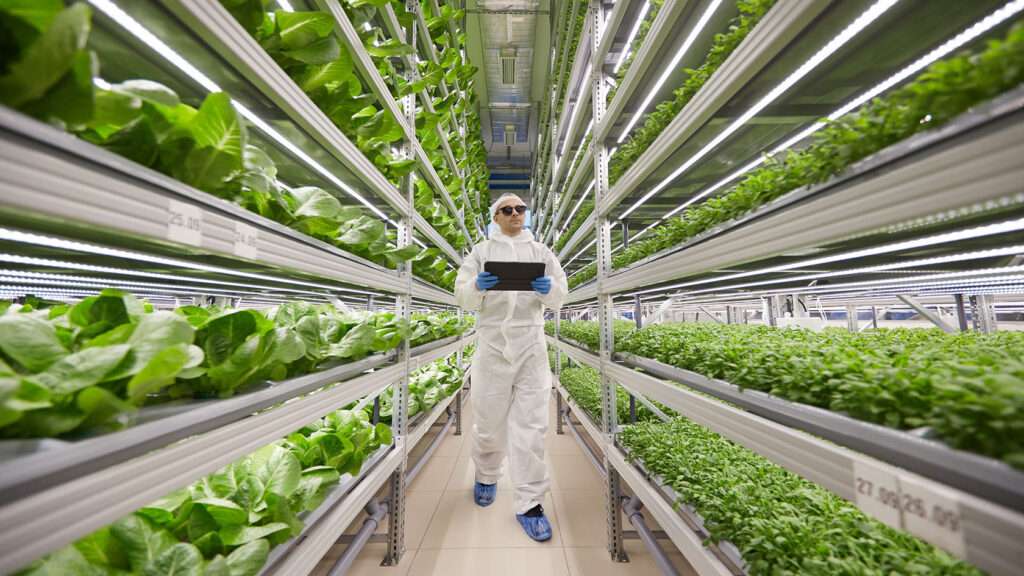The food sector has to run like clockwork — and more than ever, it also needs to cut down on its carbon footprint and become more sustainable.
While there are currently no major widespread disruptions to the U.S. food supply chain, the inventory of certain foods at grocery stores can become low intermittently. Many reasons might be behind this, but one can sometimes be that individual food firms aren’t creating enough products to meet demand.
Climate change only threatens to make this more profound, with key crops facing shorter growing seasons, and extreme weather events inhibiting the flow of products into ports and in transit to retailers.
Food firms have begun reviewing their internal workings and doing everything they can to optimize business continuity. But there are additional steps, some of which are already doing them today, to ensure a safe and consistent food supply.
Enterprise resource planning software
Firms in every sector are digitizing their processes. Food firms are doing this in many ways, and for continuity, they focus on using enterprise resource planning (ERP) software.

ERP software has many functions. It’s a single server where food firms can greatly refine their business processes and establish long-term continuity procedures more easily. Accounting tools, human resources data, and production logistics can all be managed from this area. It gives users a detailed and complete overview of the company and facilitates heightened responses to emergencies. The food firm can forecast disaster and remain alert.
Bolstering production
Food firms can’t do everything alone. They need to work with specialist partners to bolster their manufacturing processes and keep things moving promptly.
Blueprint Automation is often the go-to support network for these tasks. The company accepts products from bulk with proprietary BPA feeding technology, built through solid engineering and the use of high-quality materials and parts to minimize maintenance and maximize continuity.

These packing machines revitalize the production line and help food firms package their naked products faster than ever. Whether needing a tray packer or a case packer, all food packaging needs are accounted for. This support is tailored to the specific requirements of each food business, too. With such adaptable support, food firms can charge ahead and make the most of every second afforded to them.
Alternative and renewable power sources
If food businesses lose power, a host of problems can ensue. Therefore, they must invest in alternative power sources to keep the ball rolling. There are many consequences to power outages. Production lines can stall, creating a backlog of goods that threaten to spoil. Customers may depart the store immediately, and the company website can crash. Security can also falter online and offline, leaving the firm vulnerable to dubious activities. Damaged reputations understandably follow from all this, and consumers will shop with more reliable competitors instead.
Learning from other sectors and insights from successful CEOs
Food firms seeking operational resilience can draw valuable lessons from other sectors and the strategies implemented by successful CEOs. Tech industry leaders have long recognized the potential value of data analytics and artificial intelligence to predict and mitigate disruptions, so food firms could take similar approaches in forecasting supply chain issues or identifying inefficiencies in production lines. Selwyn Duijvestijn, CEO of DGB Group, sustainable practices have become a top priority at every level of his organization, yielding cost savings and improved efficiency. Implementation of sustainable practices also serves as a risk mitigation strategy, ensuring food firms are not solely reliant on traditional power sources.

As online grocery shopping and sustainability measures become more popular, consumers are setting higher expectations of the food firms they trade with. The sector is far less forgiving of setbacks. Responding to these pressures, food firms may invest in alternative power sources, such as backup solar generators. They are compact, have fewer parts than their traditional counterparts, and thus require less maintenance to remain operational.
Risk assessments
Food is often marketed as being delicious and wonderful. That singular mindset can be dangerous. As great as food can be, many of these products often present their fair share of risks to consumers. There are things like germs and E. coli 0157 infections to consider, and how certain demographics can be at risk from food depending on their age, medical history, and even whether or not they’re pregnant. Responsible food businesses must conduct thorough risk assessments on all products.

If something happens that the risk assessment did not account for, then the responsible food products must be promptly recalled. These procedures have to be outlined and practiced regularly to ensure timely execution. Early warning systems must be refined. Resource checks should be improved. Every worker should know their role in these procedures. If the food business responds fast, customers should be protected. Depending on the circumstances, the firm may not fall into major disrepute.
Related on Ethos:


